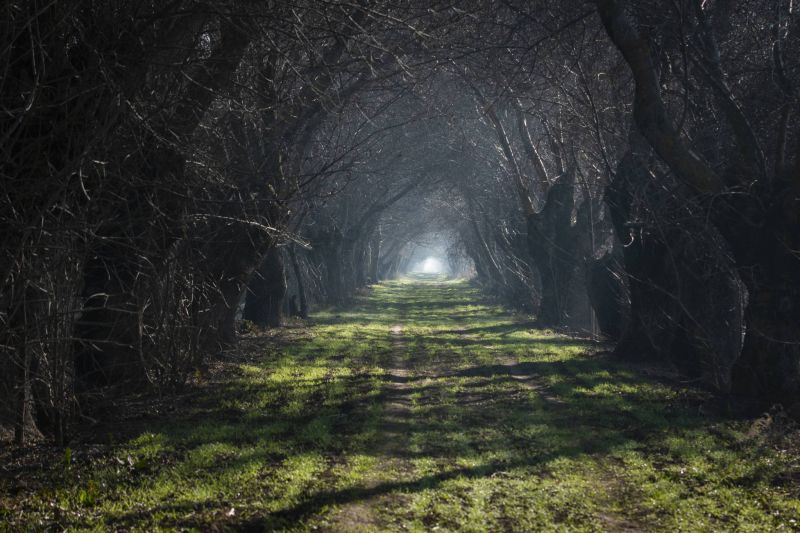
Trees with sprawling leafless branches straddle one of Ammiq wetland’s trails, giving it an eerie forest atmosphere, Jan. 21, 2023. (Credit: Sally Abou AlJoud/L’Orient Today)
AMMIQ WETLAND, Bekaa governorate — Sun rays shoot through a white mist that has settled over Lebanon’s largest remaining freshwater wetland, hemmed in by fertile farmland on all sides. Off in the distance, the back-lit silhouette of a western marsh harrier takes flight.
The Ammiq wetland in Lebanon’s Bekaa Valley is a birding hotspot providing essential habitat for migrating and breeding birds, notably pelicans, several types of herons, other waders, waterfowls, harriers and other raptors.
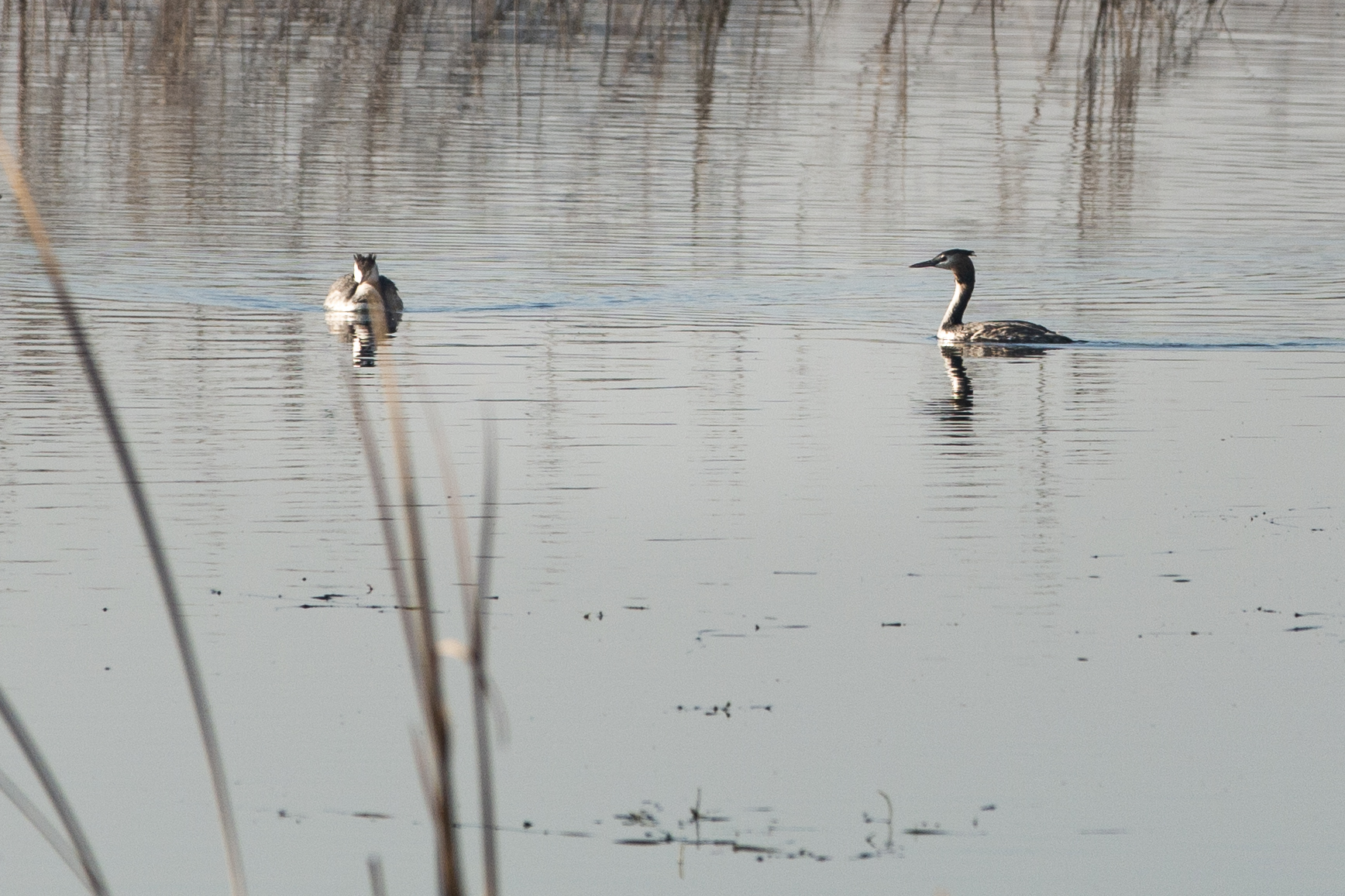 Two Great Crested Grebes (Podiceps cristatus), long-necked graceful birds, swim and pursue fish prey in one of Ammiq’s lakes, Jan. 21, 2023. According to SPNL, the first evidence of the Great Crested Grebe in Lebanon was confirmed and documented in 2019. (Credit: Sally Abou AlJoud/L’Orient Today)
Two Great Crested Grebes (Podiceps cristatus), long-necked graceful birds, swim and pursue fish prey in one of Ammiq’s lakes, Jan. 21, 2023. According to SPNL, the first evidence of the Great Crested Grebe in Lebanon was confirmed and documented in 2019. (Credit: Sally Abou AlJoud/L’Orient Today)
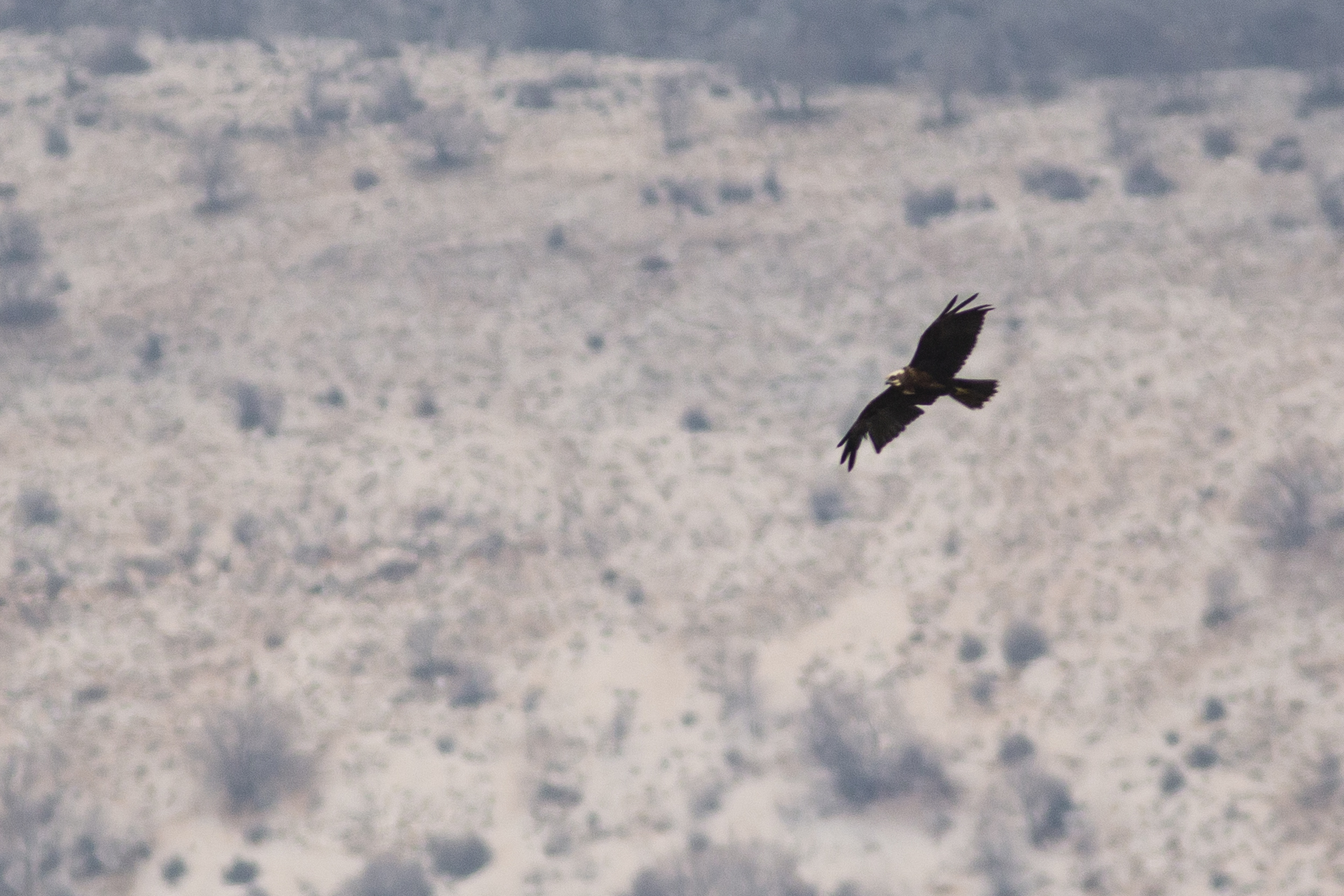 Fairly broad-winged female Western Marsh Harrier, (Circus aeruginosus), a raptor, which is almost entirely chocolate-brown with the head top and the throat having a light-yellow color, soars above the largest remaining freshwater in Lebanon, Dec. 31, 2022. The Marsh harrier, which falls under the “least concern” conservation category, is a passage migrant, a winter visitor, and a summer breeder, according to SPNL. (Credit: Sally Abou AlJoud/L’Orient Today)
Fairly broad-winged female Western Marsh Harrier, (Circus aeruginosus), a raptor, which is almost entirely chocolate-brown with the head top and the throat having a light-yellow color, soars above the largest remaining freshwater in Lebanon, Dec. 31, 2022. The Marsh harrier, which falls under the “least concern” conservation category, is a passage migrant, a winter visitor, and a summer breeder, according to SPNL. (Credit: Sally Abou AlJoud/L’Orient Today)
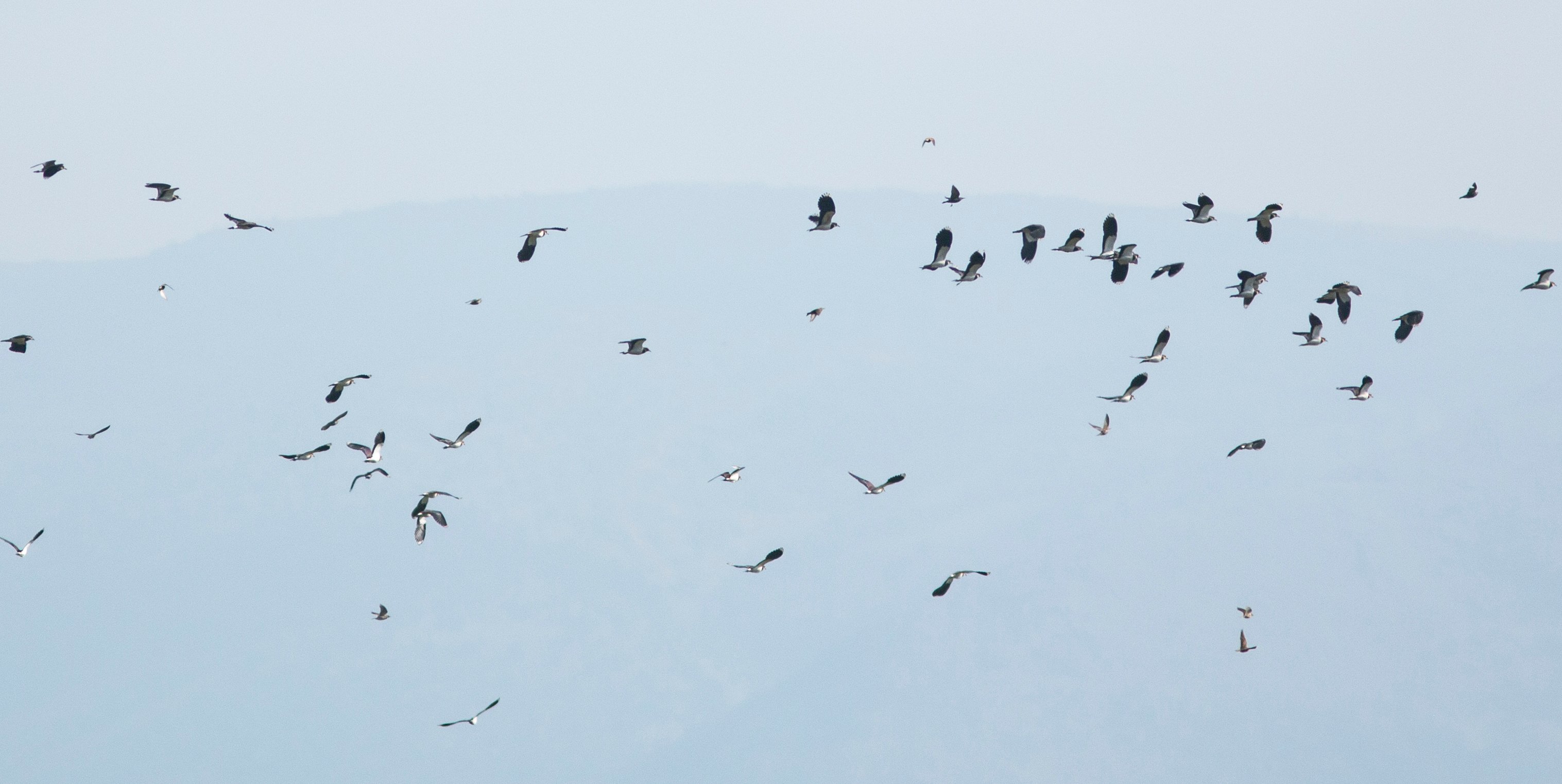 Flock of birds, specifically the Northern Lapwing (Vanellus vanellus), flies and swirls above Ammiq’s wetland, west of the Bekaa valley in Lebanon, Dec. 31, 2022. (Credit: Sally Abou AlJoud/L’Orient Today)
Flock of birds, specifically the Northern Lapwing (Vanellus vanellus), flies and swirls above Ammiq’s wetland, west of the Bekaa valley in Lebanon, Dec. 31, 2022. (Credit: Sally Abou AlJoud/L’Orient Today)
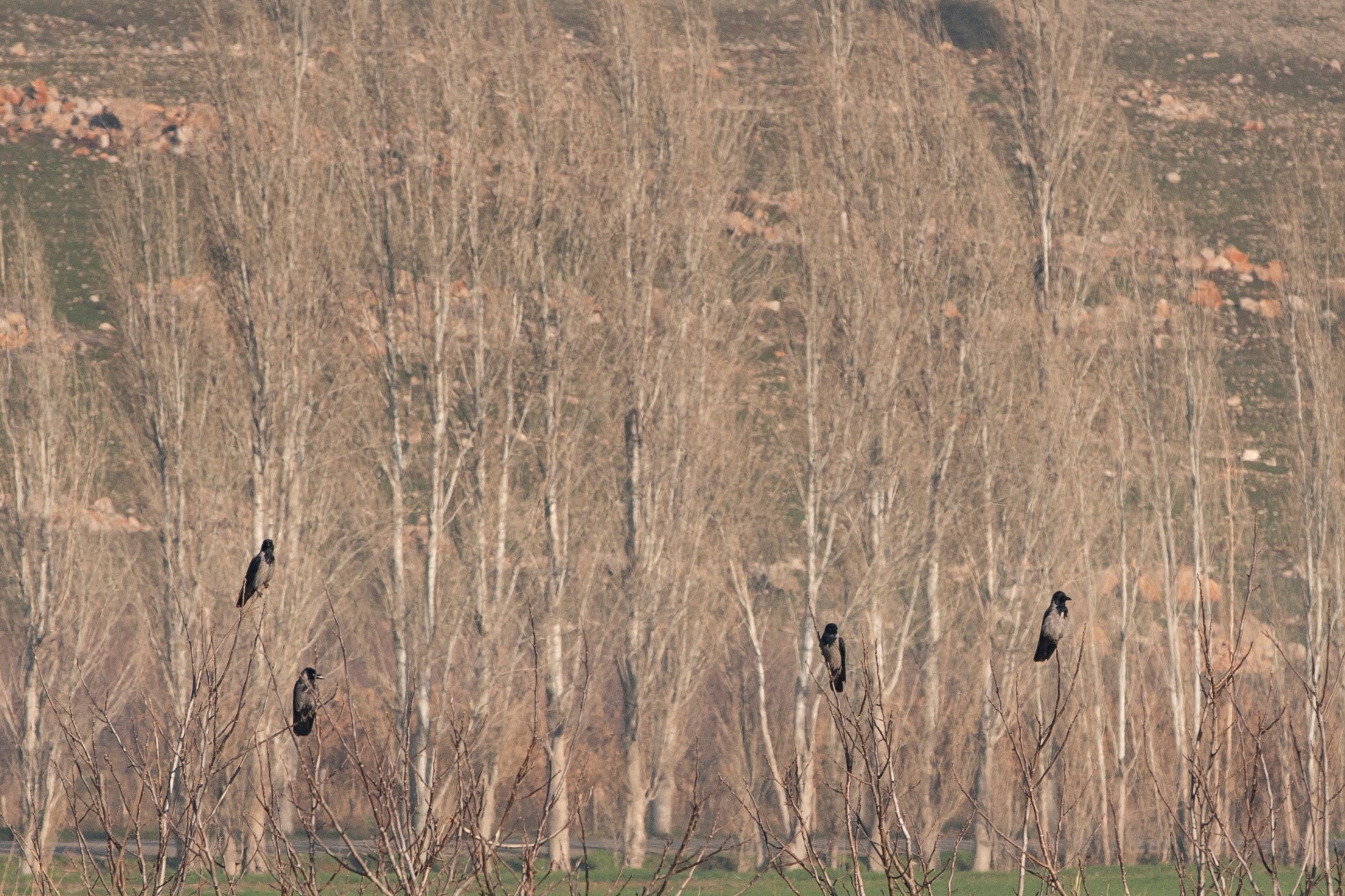 Four hooded crows rest on tree branches in Ammiq marshland in the Bekaa valley, East Lebanon, Jan. 21, 2023. (Credit: Sally Abou AlJoud/L’Orient Today)
Four hooded crows rest on tree branches in Ammiq marshland in the Bekaa valley, East Lebanon, Jan. 21, 2023. (Credit: Sally Abou AlJoud/L’Orient Today)
According to the Society for the Protection of Nature in Lebanon, more than 20,000 migrating birds wing their way through the marsh in fall and spring, “including white stork, white pelican, common crane, and at least 31 raptor species.” Additionally, the wetland is home to more than 45 bird species, at least 15 of which breed on site.
Hooded crows, ashy grey and black birds, lounge on bare tree branches, emitting their distinctive loud caws while the graceful great crested grebe — a long-necked bird firmly favored by birdwatchers — dives into the grubby algae-rich lake in search of fish to eat. The cattle egret, meanwhile, soars over the marshland’s field of cattails.
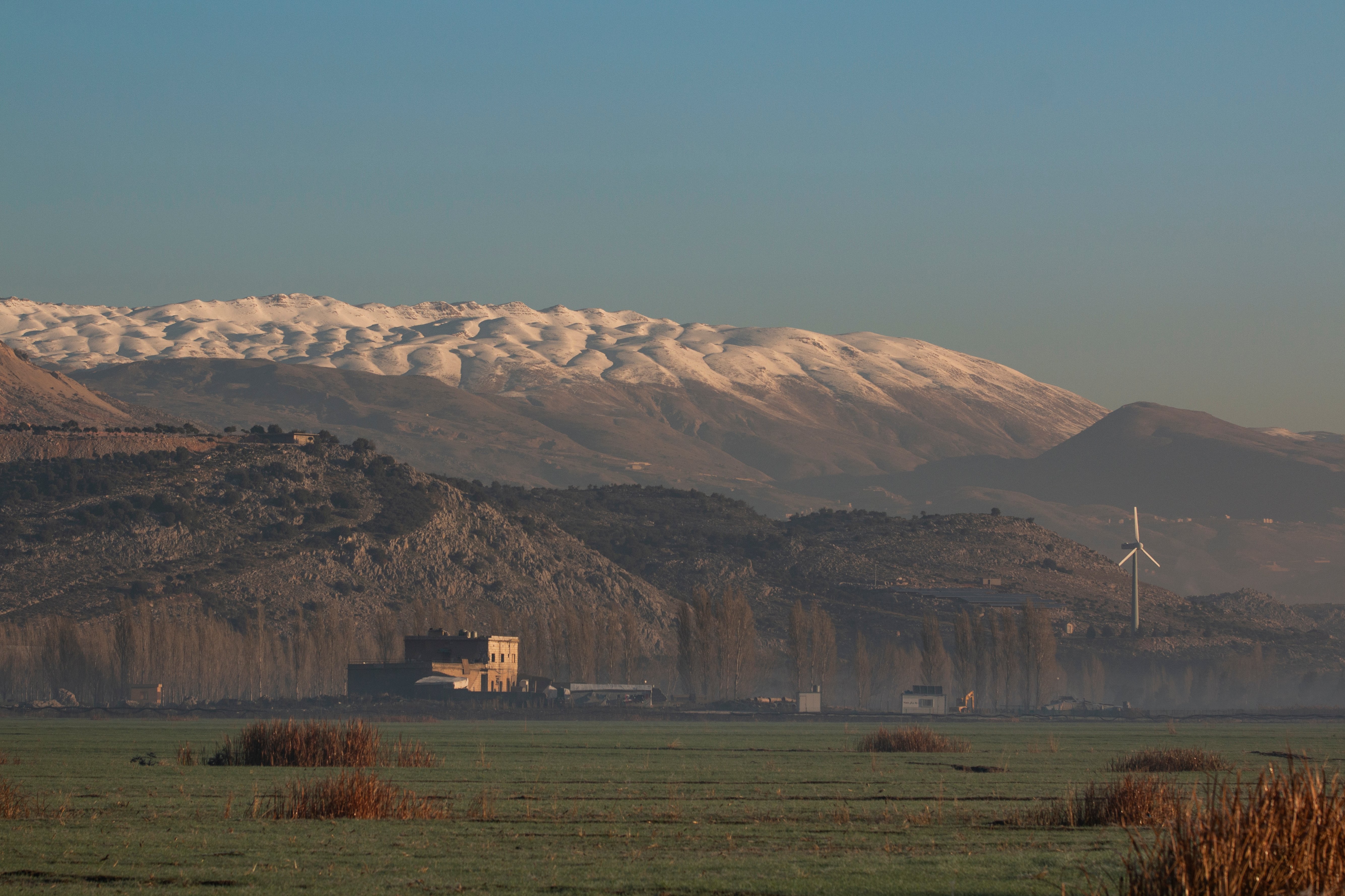 A snowcapped mountain is seen from Ammiq wetland which lies on one of the most important bird migration routes in the world, Jan. 21, 2023. (Credit: Sally Abou AlJoud/L’Orient Today)
A snowcapped mountain is seen from Ammiq wetland which lies on one of the most important bird migration routes in the world, Jan. 21, 2023. (Credit: Sally Abou AlJoud/L’Orient Today)
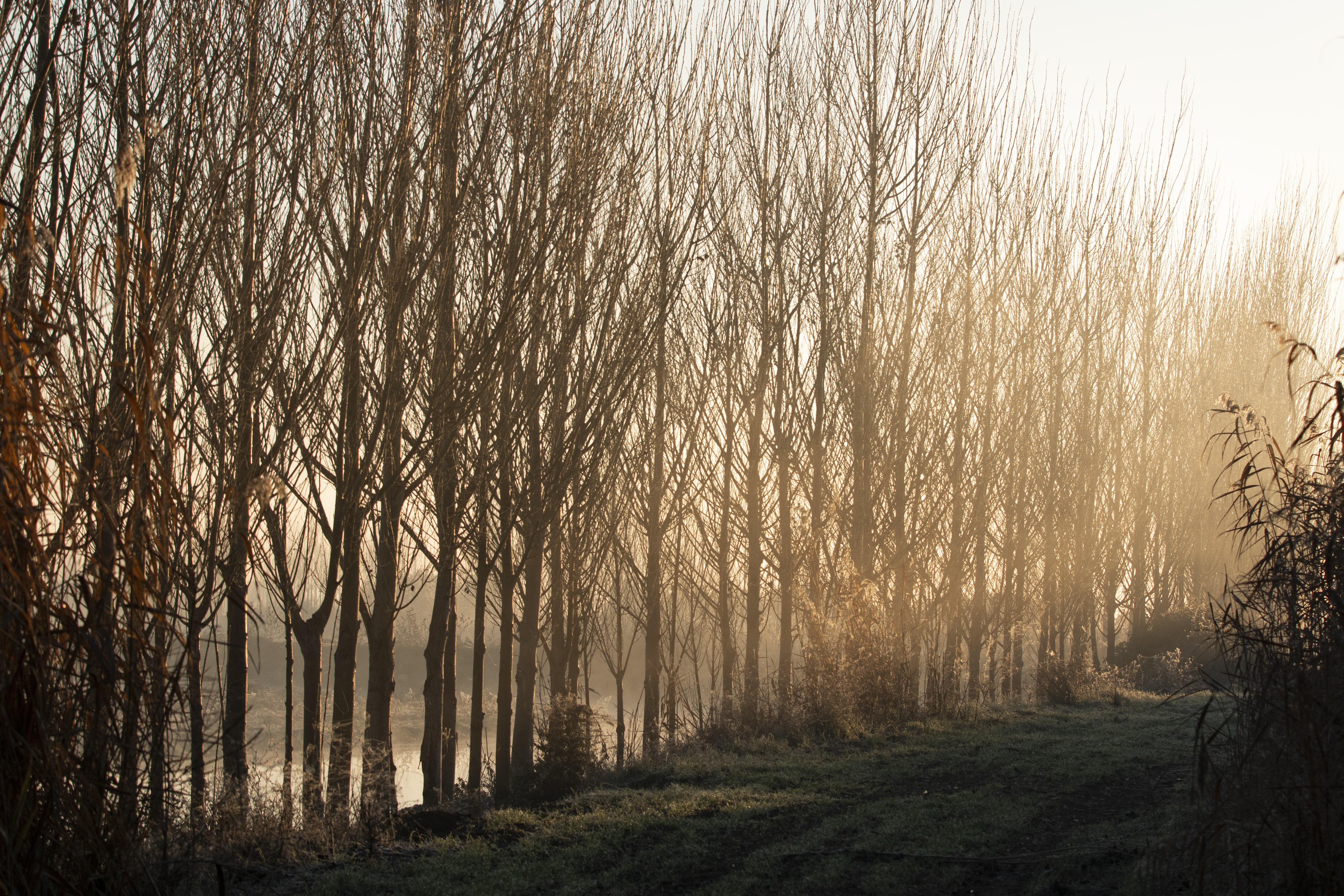 Sunrise at Ammiq Wetland, Jan. 21, 2023. (Credit: Sally Abou AlJoud/L’Orient Today)
Sunrise at Ammiq Wetland, Jan. 21, 2023. (Credit: Sally Abou AlJoud/L’Orient Today)
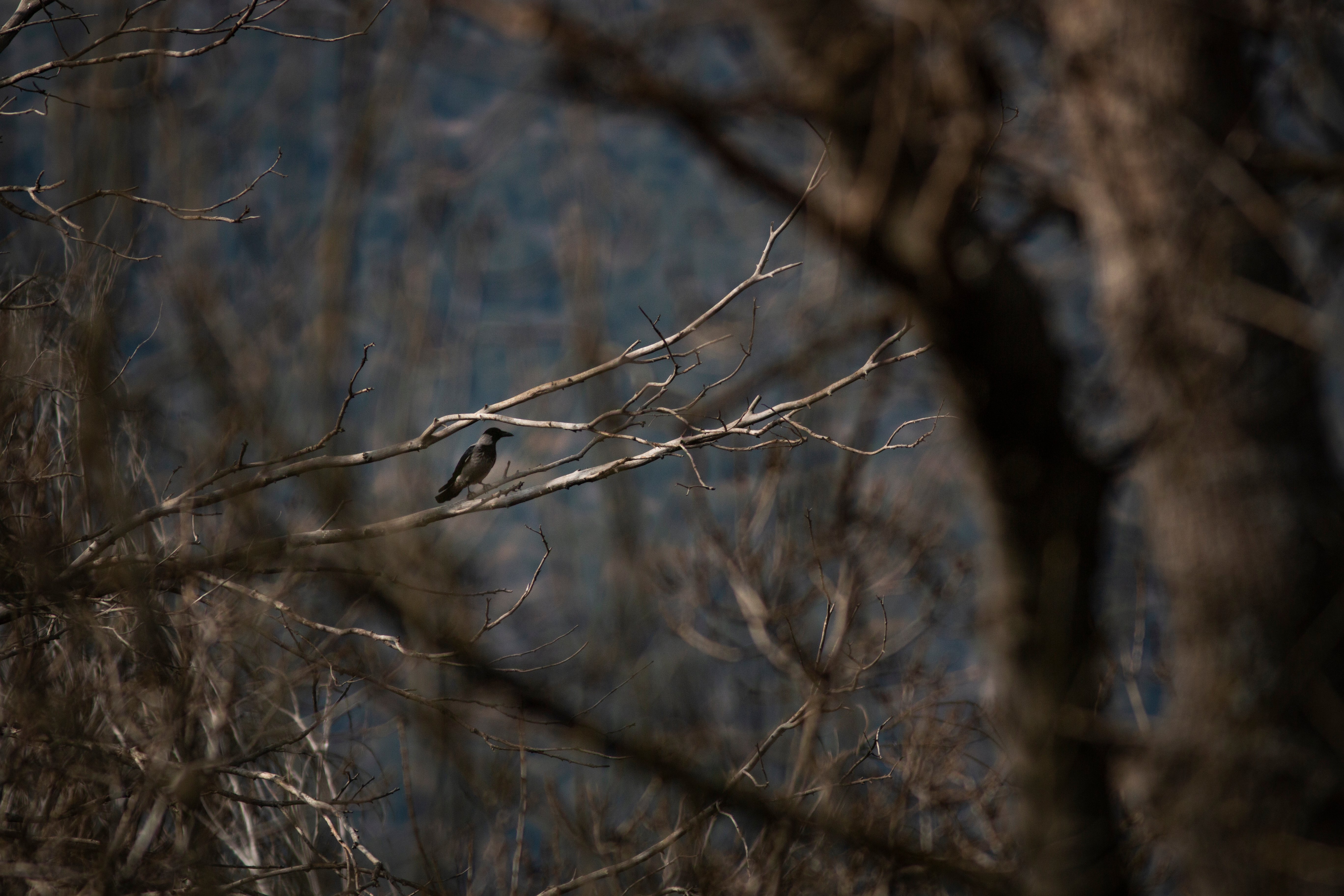 A hooded crow (Corvus cornix), with an ashy gray and black colors, perches on a tree branch in Ammiq Wetland, Dec. 31, 2022. According to the Society for the Protection of Nature in Lebanon (SPNL), this bird, who falls under the “least concern” conservation category, is an omnivorous and opportunistic forager and feeder. (Credit: Sally Abou AlJoud/L’Orient Today)
A hooded crow (Corvus cornix), with an ashy gray and black colors, perches on a tree branch in Ammiq Wetland, Dec. 31, 2022. According to the Society for the Protection of Nature in Lebanon (SPNL), this bird, who falls under the “least concern” conservation category, is an omnivorous and opportunistic forager and feeder. (Credit: Sally Abou AlJoud/L’Orient Today)
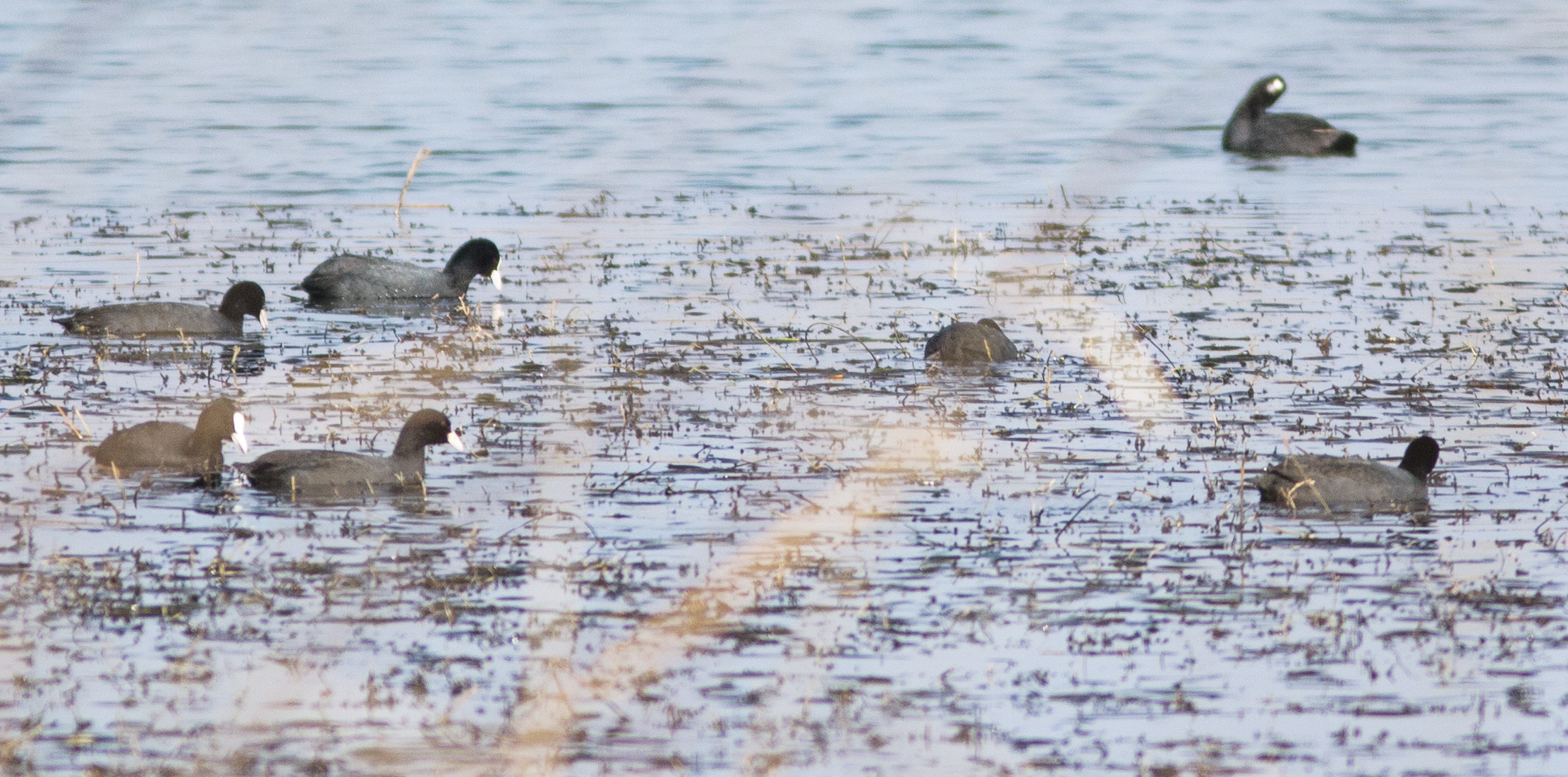 Eurasian Coots (Fulica atra), dark grey waterfowl with a distinctive white bill, float in one of Ammiq’s swamps, Dec. 31, 2022. (Credit: Sally Abou AlJoud/L’Orient Today)
Eurasian Coots (Fulica atra), dark grey waterfowl with a distinctive white bill, float in one of Ammiq’s swamps, Dec. 31, 2022. (Credit: Sally Abou AlJoud/L’Orient Today)
Mudflats snake across Ammiq’s bird sanctuary. The wetland is an escape for humans and a refuge for migrating birds on their long journeys across the northern and eastern hemispheres of Europe and Africa.
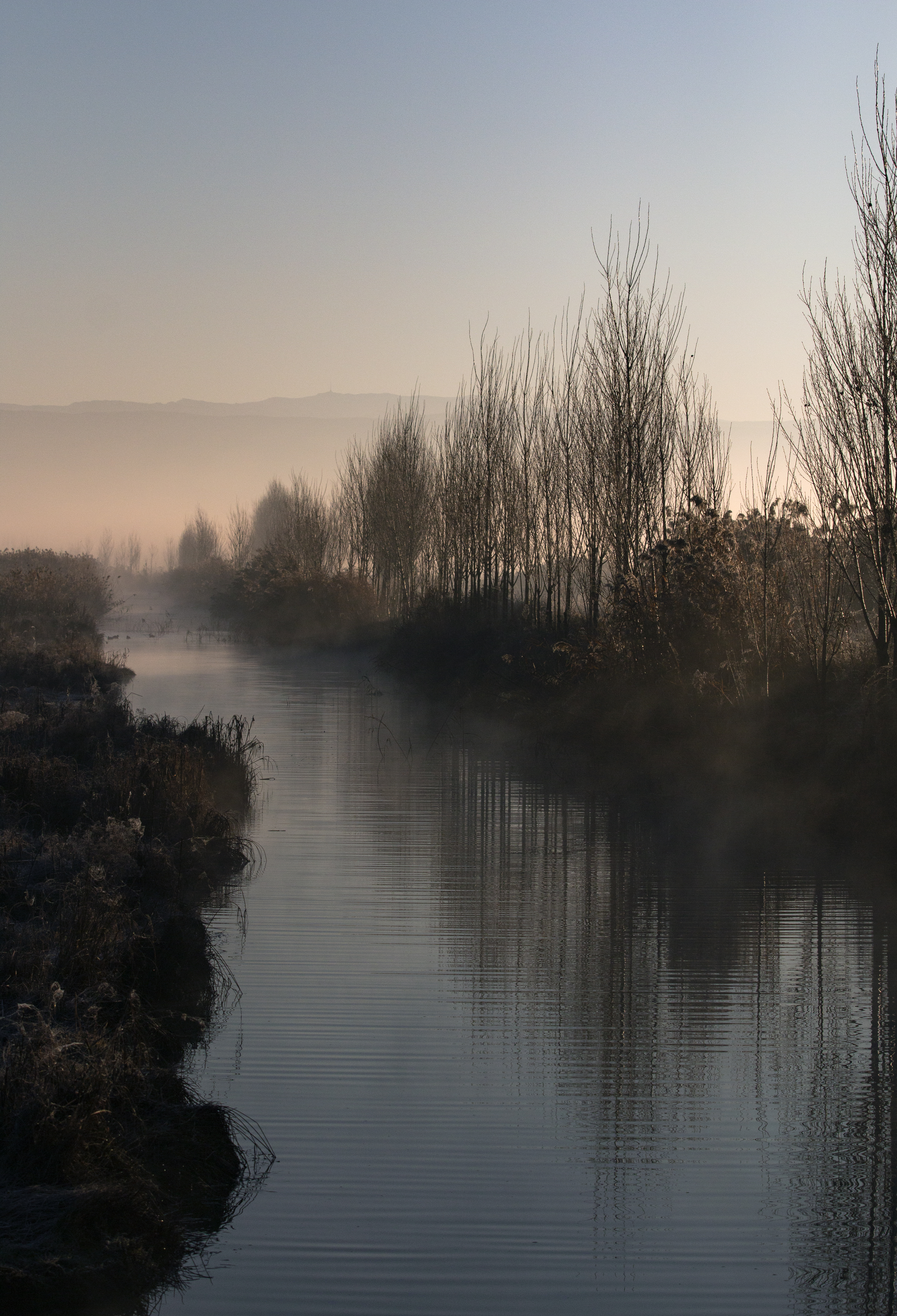 A misty swamp flanked by Ammiq’s grasslands, biodiversity-rich sites, during the first flush of morning, Jan. 21, 2023. (Credit: Sally Abou AlJoud/L’Orient Today)
A misty swamp flanked by Ammiq’s grasslands, biodiversity-rich sites, during the first flush of morning, Jan. 21, 2023. (Credit: Sally Abou AlJoud/L’Orient Today)
By the time the sky has thinned out into a soft blue, distant gunshots could be heard. Two bird poachers with shotguns appear at the edge of the designated Important Bird Area.
The wetland’s guard, Kefah, says it’s a situation they are forced to grapple with on a regular basis — bird hunters always make their way in despite the activity being completely prohibited inside the reserve. He then orders a patrol riding a four-wheel drive to find the men and stop them.
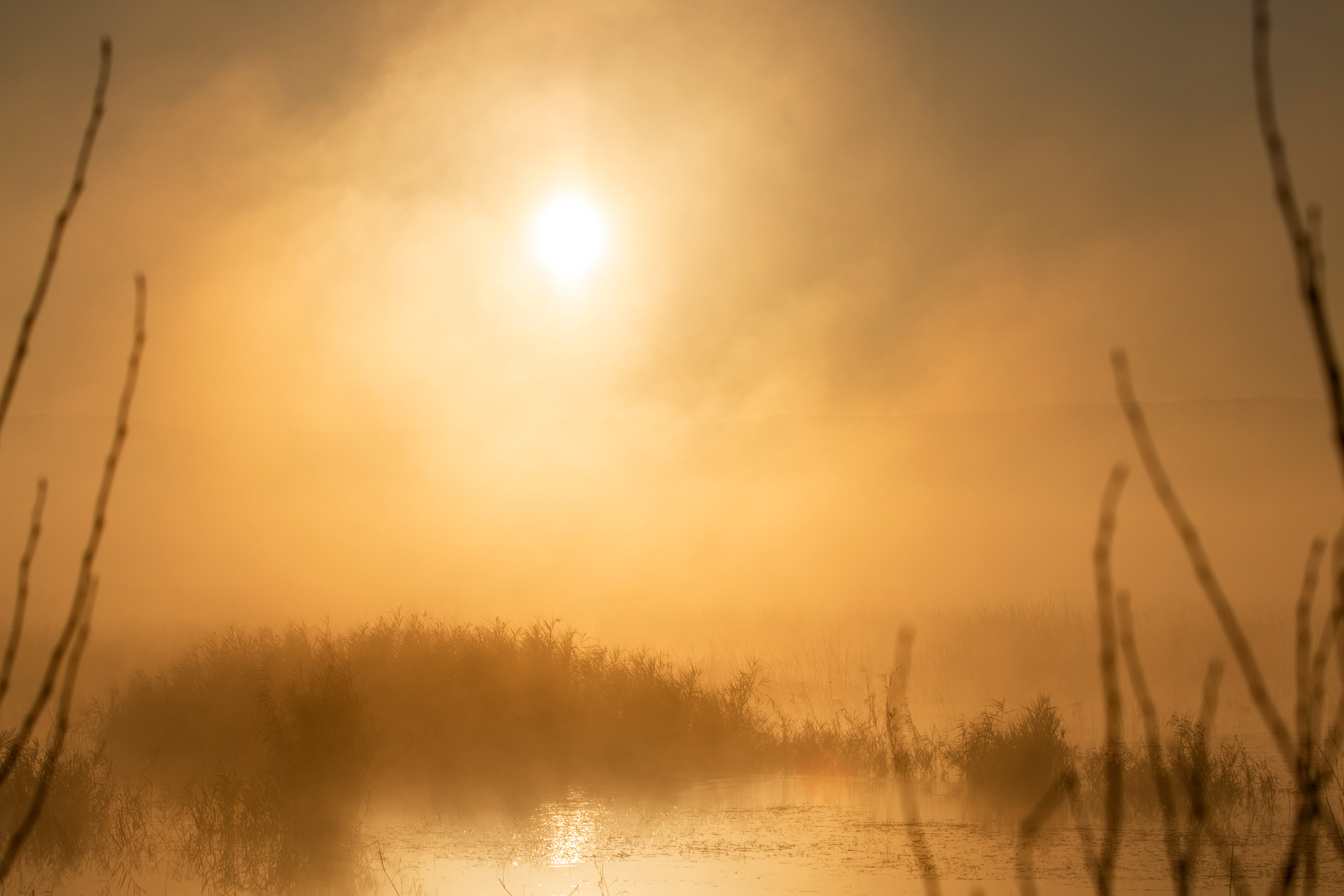 Sunrise at Ammiq Wetland, Jan. 21, 2023. (Credit: Sally Abou AlJoud/L’Orient Today)
Sunrise at Ammiq Wetland, Jan. 21, 2023. (Credit: Sally Abou AlJoud/L’Orient Today)